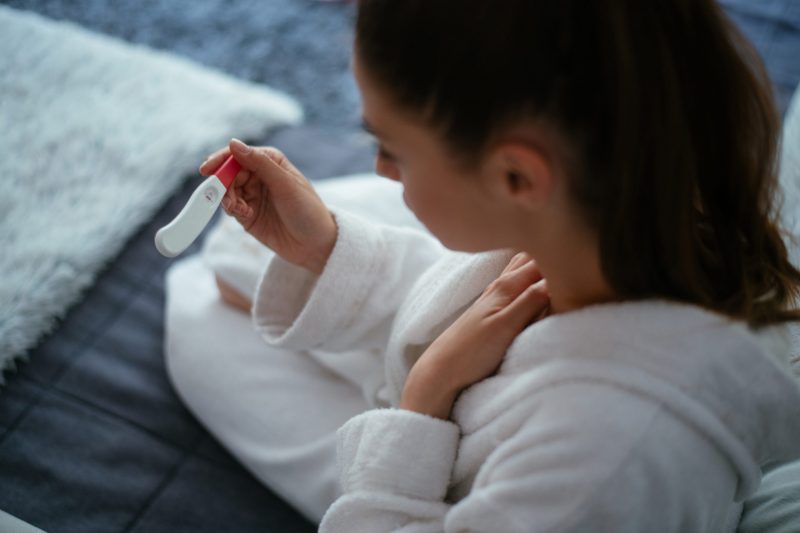Every day you see celebrities who are 40 or even older sporting baby bumps. Most of them deny they’ve had any
fertility treatments.

People may say “40 is the new 20,” but it’s not true where your fertility is concerned. If you want to have a child someday, or someday soon, here are some signs that it may be time to take action.
1. You’re 35 or Older
A woman’s age has everything to do with her fertility. Every woman is born with all the eggs she will ever have in her life, as many as one to two million! Once a girl goes through puberty, she will ovulate 300 to 400 eggs before going through menopause, usually around age 50, and the rest will have gradually died on their own. But this isn’t a steady, straight-line process. A woman’s fertility begins to decline gradually in her late 20s, declines more sharply around age 35, and drops sharply at age 40. Other factors also influence a woman’s fertility, such as smoking or genetic background, but age is the most powerful influence.According to the American Society for Reproductive Medicine, a healthy 30-year-old woman has about a 20 percent chance of getting pregnant each month, while a 40-year-old woman has about a five percent chance. The reason for this is your ovarian reserve, the quality and quantity of your eggs. Eggs decrease in quantity and have more genetic problems as you get older.
2. Your Period Has Changed
Have your periods started getting shorter in length? Have you started skipping periods? Changes to your menstrual cycle may be a sign that you are getting closer to menopause, even if you’re not quite that age yet.
3. Other Women in Your Family Have Had Fertility Issues
Did your mother go through menopause at an earlier age, under age 50? Has your older sister had problems trying to conceive? Your mother and your sisters’ reproductive problems may give you clues to your own. Some genes that control ovarian reserve can lead to early menopause and trouble conceiving.
4. You’ve Been Trying to Conceive Without Success
If you’re under 35 and have been having unprotected sex for a year without getting pregnant, or you are over 35 and have been trying for six months, you may be having fertility problems. Another sign may be that you’ve been able to get pregnant but have had several early miscarriages.
What to Do Next
If you have one or more of these signs, your biological clock may be ticking faster than you thought. If you want to have a baby, it may be time to consult a fertility specialist. A reproductive endocrinologist can evaluate your ovarian reserve and help you decide if fertility treatment is right for you, so you can get the family you want.
 People may say “40 is the new 20,” but it’s not true where your fertility is concerned. If you want to have a child someday, or someday soon, here are some signs that it may be time to take action.
People may say “40 is the new 20,” but it’s not true where your fertility is concerned. If you want to have a child someday, or someday soon, here are some signs that it may be time to take action. People may say “40 is the new 20,” but it’s not true where your fertility is concerned. If you want to have a child someday, or someday soon, here are some signs that it may be time to take action.
People may say “40 is the new 20,” but it’s not true where your fertility is concerned. If you want to have a child someday, or someday soon, here are some signs that it may be time to take action. People may say “40 is the new 20,” but it’s not true where your fertility is concerned. If you want to have a child someday, or someday soon, here are some signs that it may be time to take action.
People may say “40 is the new 20,” but it’s not true where your fertility is concerned. If you want to have a child someday, or someday soon, here are some signs that it may be time to take action.


